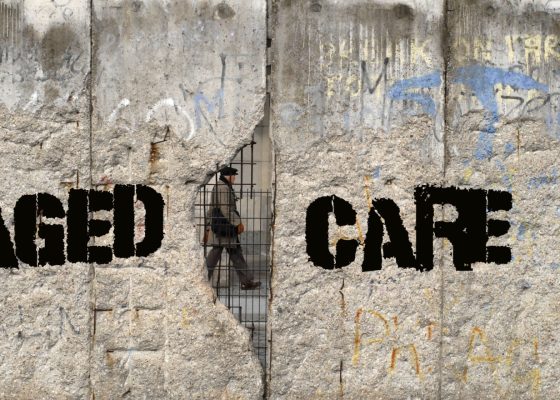They’ve got one year to fix it. After that, providers who don’t give residents their rights will be named, the report says.
Only 5% of Australia’s residential aged care facilities provide full access to VAD and publicly available information about it, even though it is a legally available option in every state and shortly in the ACT.
“The findings in this report are disappointing. The principle of person-centred care, so commonly quoted in residential aged care mission statements, is only meaningful when it translates into practice,” the report says.
The report, Voluntary Assisted Dying in Residential Aged Care Homes: A national report card, was put together by Go Gentle Australia, an expert advisory and health promotion charity that advocates for people to have better end-of-life choices, including voluntary assisted dying.
It looked at 72 providers of residential aged care (around 70% of residential aged care in Australia), which included 130,000 beds.
Of these, 85% did not offer access to VAD (or did not say they did) and 70% offered no publicly available information about VAD. Nationally, 18% of providers had publicly available information, 13% provided limited information, and 69% gave no publicly available information about VAD at all. Only 5% (four providers) provide full VAD access to residents.
Importantly, 44% of residential aged care providers didn’t respond to requests for information, even after being asked three times.
Some who responded said they didn’t have VAD policies, including one of the largest ones in the country, which operates in Victoria where VAD has been available for six years, and in Western Australia, where it’s been available for four years, the report said.
“These results call into question how some providers are complying with the requirements of their duties under state VAD law or the existing and new Aged Care Act,” the report said.
Related
The intention was “not to condemn but to encourage and support the RAC sector to bridge the gap between obligations and reality”, which was why they hadn’t named specific facilities – for now.
When they repeat the report in a year, it will all be made public.
They did name two that demonstrated best practice: OneCare Rubicon Grove, located in Tasmania’s Port Sorell, and Uniting NSW.ACT.
Where legal, all Australians, including those in residential aged care, had the right to choose their end-of-life care, as stated unequivocally by the Aged Care Quality and Safety Commission, the Older Person’s Advocacy Network (OPAN) said in its foreword to the report.
According to the ACQSC “… a provider that decides not to take part will still have to meet its provider responsibility to support residents’ right to exercise choice to access the VAD process”.
But the report found that some of the largest providers of faith-based services (around 10,000 beds) reinforced “harmful stigma around VAD with public statements that they do not recognise VAD as a ‘medical treatment’”.
That was not in line with “agreed definitions” of VAD and could cause harm and distress to residents looking for access to or information about VAD, the report said.
“The new Aged Care Act 2024, effective from 1 November 2025, stipulates that older people have a right to exercise choice and make decisions that affect the individual’s life; be supported (if necessary) to make those decisions and have those decisions respected; palliative care and end-of-life care when required; be treated with dignity and respect; and safe, fair, equitable and non-discriminatory treatment,” OPAN said in the foreword.
“With this new Act comes an opportunity for RACHs to start afresh and put these principles into action. This is the transformation we want to see.”
The report made three recommendations to providers:
- Provide publicly accessible VAD information that is clear, up-to-date and tailored to older people’s needs.
- Provide a clear public explanation of the level of VAD access supported on the providers’ premises.
- Implement an appropriate VAD policy, including procedures, practices and adequate training for all staff.
And it made one recommendation for state and federal governments and relevant agencies:
- State and federal governments to investigate and encourage residential aged care providers’ compliance with relevant legislative and regulatory obligations.
Read the full report here.




